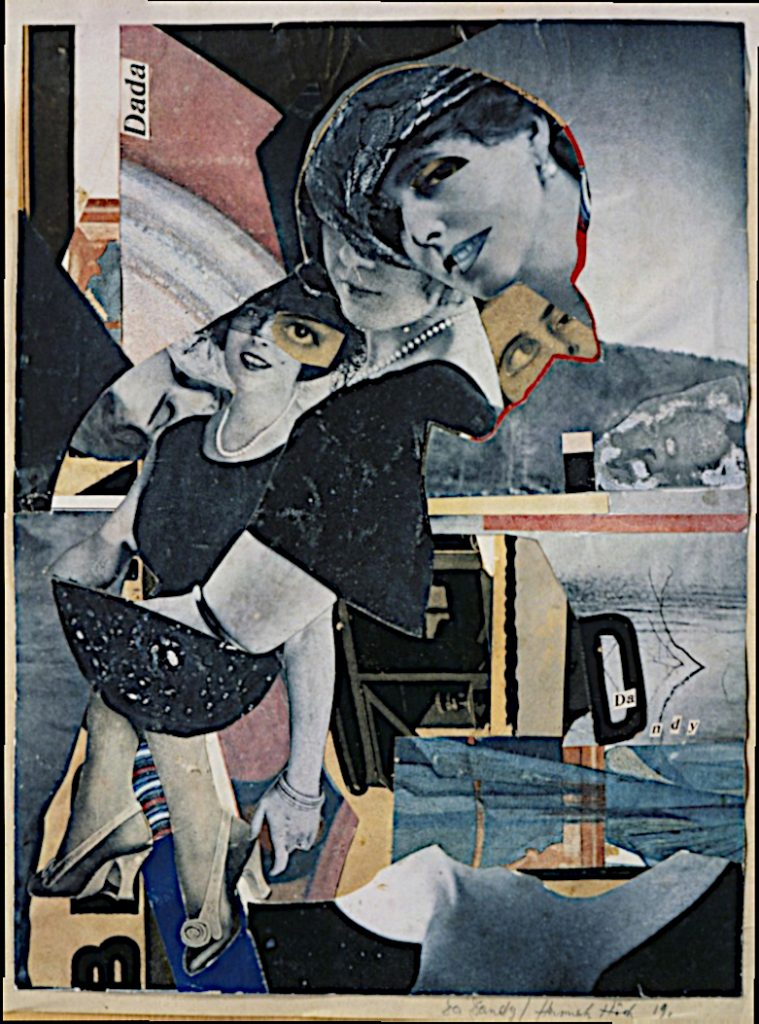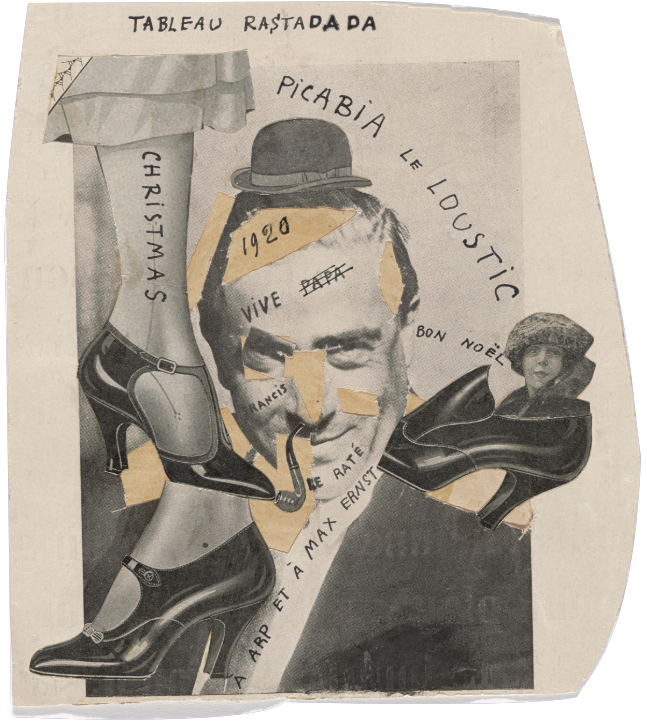A Hidden Conversation:
Da-Dandy and a Possible Duchampian Rebuke
In 1919, Hannah Höch produced one of her most striking photo-collages:
Da-Dandy. Among its layered fragments is a haunting profile of a man watching over the scene like a ghost. The piece is rich with gender critique, cultural parody, and defaced glamour—but there may be another layer buried within:
a veiled reference to Marcel Duchamp.
Da-Dandy includes not only stylistic echoes but also conceptual ones. The juxtaposition of bourgeois elements, the parody of glamour, the ambiguity of identity, the defacement of visual hierarchy—each of these had already been explored by Duchamp, Picabia, and Man Ray in New York.
This might have been more than homage. It might have felt, to Duchamp,
like exposure.
Shortly afterward, a strange artwork appears: a small offset cover design printed for the publication New York Dada. It bears what appears to be a message:
“WATCH YOUR STEP!” and “CUT OUT DADADYNAMIC STUFF”
Could this be a reference to his own cut out profile, or just photomontage in general.
Those warnings feels personal.
The leg is a Stieglitz photograph, repurposed, recontextualized. His artwork set beside a string of clipped sentences that read like fragments of overheard conversation.
Was this aimed at Höch?
A reprimand for using a visual language she wasn’t meant to inherit?
A reaction to seeing Duchamp’s code performed by someone outside the
New York circle—and with too many of the gestures, too visibly deployed,
and too little disguise?
The image speaks in layers, just as Da-Dandy did. The rebuke, if it is one, is sharp. Wrapped in precisely the kind of aesthetic weaponry Duchamp himself had forged: ambiguity, elegance, irony, and erasure.
I understood that I was hurting his feelings, I understood…
that she was hurting his feelings; the sea air did us no good…
They did not get along in the world. When they will have given
rise to suspicions in his mind they will not be so well treated. You
will not be so well treated… We had better write to him.
We would do nothing of the kind.
You would hurt his feelings.
Had I told that to you I would have made his mouth water
I am delighted you have got on in the world. Do
not hurt him, after having hurt him you try to console him.
Why
do you not offer us something
after having made our mouths water


